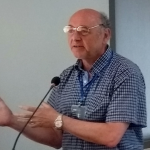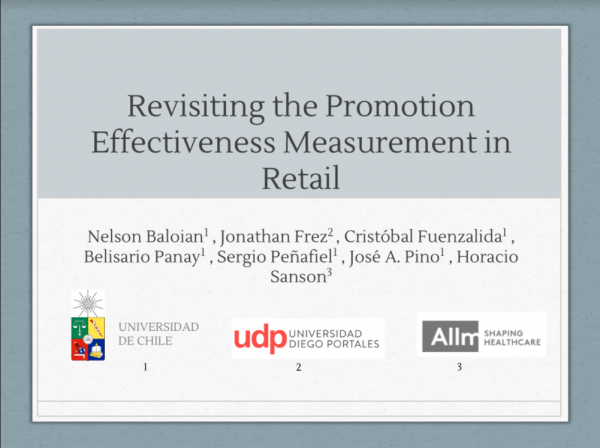Nelson Baloian
N. Baloian, J. Frez, C. Fuenzalida, B. Panay, S. Peñafiel, J. A. Pino, and H. Sanson
Universudad de Chile, Department of computer sciences
Abstract:
| Retail store managers need to measure the effect of promotions have in terms of the number of people visiting a store and sales in order to make decisions for an efficient use of resources. The state or the art approach to this problem is the authors propose to measure the effects of a promotion is to develop a predictor for the number of people entering the store, in conditions of absence of any promotion campaigns and then compare the output against actual data and measure the difference. This approach shows some drawbacks because stores have permanently some kind of promotion running, which makes the training of a model with the required data almost impossible. This work proposes to use a different methodology to the one mentioned above which is based on first identifying periods of time with abnormal behavior and then examining back to check the promotions being applied during that time. For this purpose, we first developed an accurate predictor and then we compute a function which will compare the difference of the predicted value with the real value, against the same indicator but for the whole set of retail stores which are considered to be of the same market type. This work presents the results obtained and examples of how can this be used to compare a store behavior compared to the rest of the market in order to search for singularities. |


 Discussion Room: Revisiting the Promotion Effectiveness Measurement in Retail
Discussion Room: Revisiting the Promotion Effectiveness Measurement in Retail